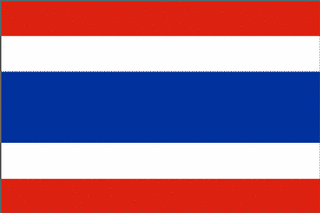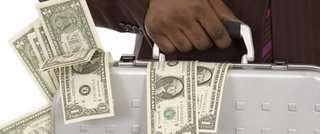It is the only source that can provide a chance for economic breakthrough
Published:
21 March 2005 y., Monday
Money from Russia’s Stabilisation Fund is expected to be invested abroad in dollar-nominated securities, with minimum investment risks and minimum profitability at 2-4%. These funds have until now been kept in Central Bank accounts. This means that a great deal of money will soon appear on the financial markets. On February 1, 2005, the Fund totaled 647.2 billion roubles ($23.1 billion), which mostly came from taxes on oil sales with prices exceeding $20 per barrel and export duties from oil companies.
The crucial question is how this money should be used. Money can only be taken out of the Fund when it has more than 500 billion roubles. Therefore, more than a fifth of its resources can already be used. This is a key issue for Russia’s economy, as the positive overseas market situation in recent years has been almost exclusively responsible for its growth.
However, experts are not tired of repeating that the potential of the resource-oriented Russian economy has been virtually exhausted. The mechanism whereby "we produce oil, sell it and enjoy the benefits" is becoming increasingly less effective. The country is now at a stage when it must introduce an industrial policy. However, any policy only makes sense when there is money to implement it.
Russia’s stock market and banking system do not provide the necessary financing for the real sector of the economy. Direct foreign investment in Russia remains at a very low level, while foreign investment in general is concentrated on either the import of equipment or foreign borrowings. The country obviously needs sources for further growth. The Stabilisation Fund is virtually the only potential source today and a genuine war is being waged for its funds.
Šaltinis:
financialexpress.com
Copying, publishing, announcing any information from the News.lt portal without written permission of News.lt editorial office is prohibited.
The most popular articles
 In January 2009, the EBRD commissioned two Italian consultants to study Turkey's sustainable energy market in preparation for future investments.
more »
In January 2009, the EBRD commissioned two Italian consultants to study Turkey's sustainable energy market in preparation for future investments.
more »
 Next week a delegation of more than 50 Chinese businessmen, accompanying the Chinese Vice-Premier Hui Liangyu, are arriving to Lithuania.
more »
Next week a delegation of more than 50 Chinese businessmen, accompanying the Chinese Vice-Premier Hui Liangyu, are arriving to Lithuania.
more »
 The German developer “ECE” together with Lithuanian partners opened a new shopping and entertainment centre Ozas Gallery in Vilnius.
more »
The German developer “ECE” together with Lithuanian partners opened a new shopping and entertainment centre Ozas Gallery in Vilnius.
more »
 As it embarked on an ambitious stimulus spending, Thailand turned to the World Bank for advice on how to fast track the spending coupled with proper management controls to keep programs on the rails.
more »
As it embarked on an ambitious stimulus spending, Thailand turned to the World Bank for advice on how to fast track the spending coupled with proper management controls to keep programs on the rails.
more »
 Peter Reiniger Business Group Director for Central Europe and the Western Balkans from the European Bank for Reconstruction and Development visited Latvia to sign subordinated loan agreement with Parex banka.
more »
Peter Reiniger Business Group Director for Central Europe and the Western Balkans from the European Bank for Reconstruction and Development visited Latvia to sign subordinated loan agreement with Parex banka.
more »
 On Monday AB DnB NORD Bankas started placement of a 13-month fixed-rate Lithuanian government bonds. It is the first time when Lithuanian sovereign USD denominated securities will be available on Lithuania’s retail market.
more »
On Monday AB DnB NORD Bankas started placement of a 13-month fixed-rate Lithuanian government bonds. It is the first time when Lithuanian sovereign USD denominated securities will be available on Lithuania’s retail market.
more »
 The Swedish business daily Dagens Industry published an interview with Andrius Kubilius, the Prime Minister of Lithuania, to Bloomberg News.
more »
The Swedish business daily Dagens Industry published an interview with Andrius Kubilius, the Prime Minister of Lithuania, to Bloomberg News.
more »
 The economic crisis still has a firm grip on large parts of the world. But Sweden’s Minister for Trade Ewa Björling can see bright spots.
more »
The economic crisis still has a firm grip on large parts of the world. But Sweden’s Minister for Trade Ewa Björling can see bright spots.
more »
 The European Bank for Reconstruction and Development and KfW Entwicklungsbank (The German development bank) are providing a financing programme worth up to €28.9 million to MegaBank - one of the strongest regional banks in the eastern Ukraine.
more »
The European Bank for Reconstruction and Development and KfW Entwicklungsbank (The German development bank) are providing a financing programme worth up to €28.9 million to MegaBank - one of the strongest regional banks in the eastern Ukraine.
more »
 A settlement in an international tax dispute that strained U.S. ties with Switzerland.
more »
A settlement in an international tax dispute that strained U.S. ties with Switzerland.
more »